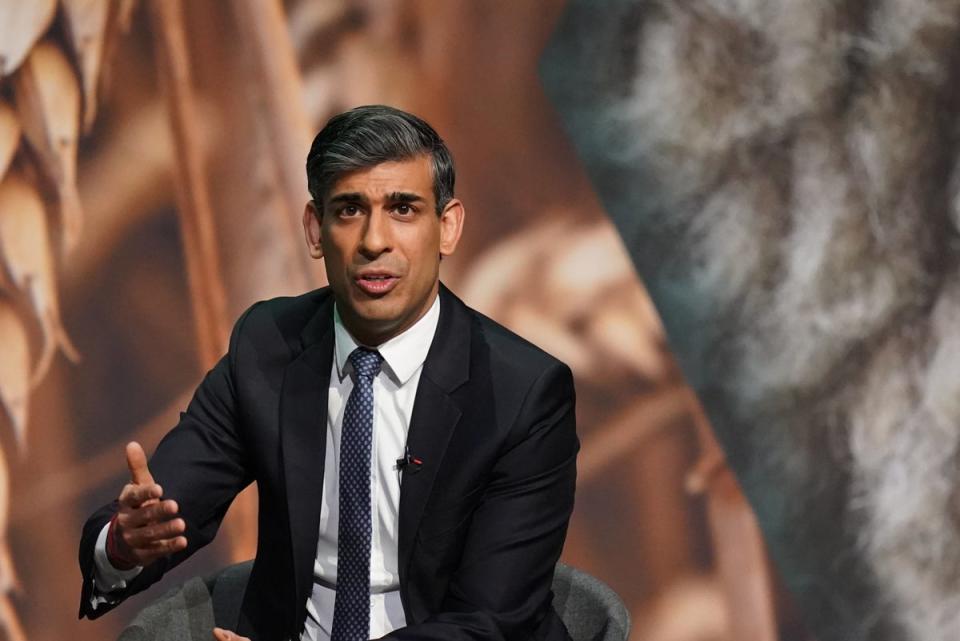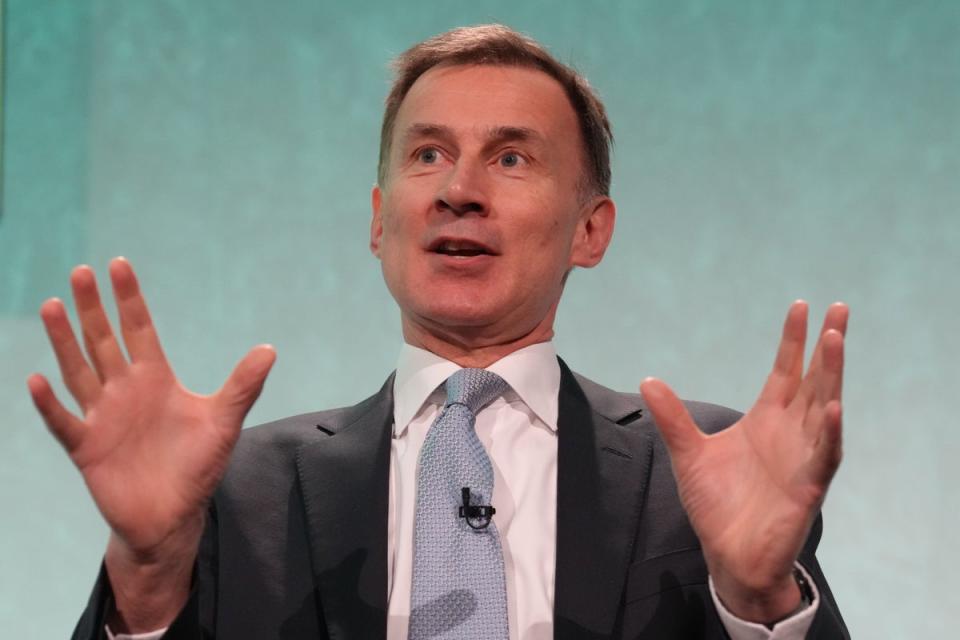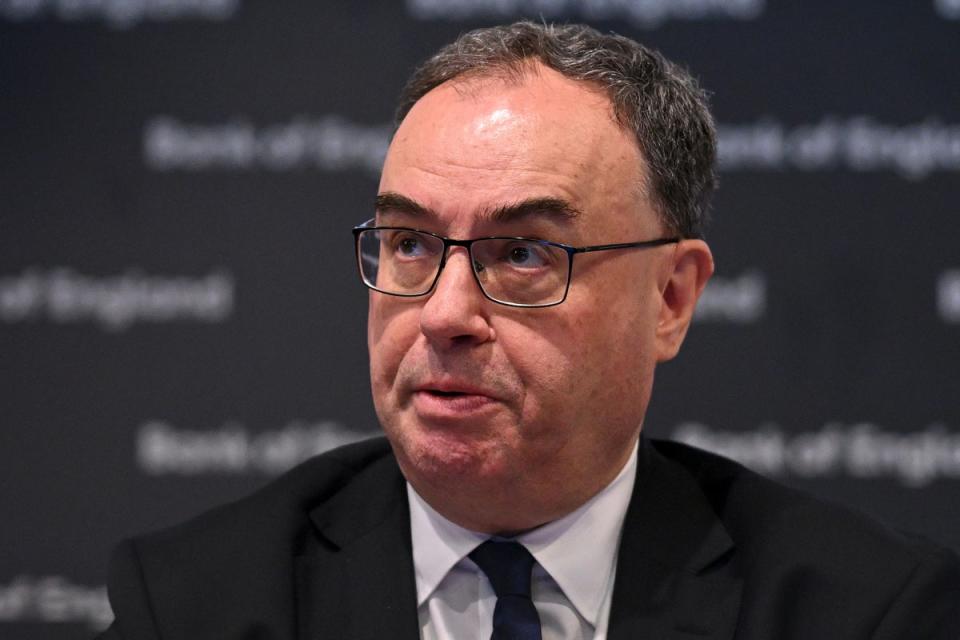Bank of England chief hints at interest rates cut and says UK recession is ‘very weak’
The boss of the Bank of England has said Britain’s “very small” recession may already be over in a boost for beleaguered Rishi Sunak.
Andrew Bailey told MPs that officials at the central bank think the economy “is already showing distinct signs of an upturn”.
And, just days after official figures confirmed Britain had fallen into a recession, Mr Bailey said it was the weakest downturn since the 1970s “by a long way”.
Mr Sunak was slammed after the Office for National Statistics said the economy shrank by 0.3 per cent at the end of last year. Shadow chancellor Rachel Reeves said it left his pledge to grow the economy “in tatters”.

But, speaking to parliament’s treasury committee on Tuesday, Mr Bailey said: “We have a very precise definition of a recession in this country as two successive quarters of negative GDP growth.”
He pointed to the 0.5 per cent cumulative fall in growth last year, adding:
“If you look at recessions going back to the 1970s, this is the weakest by a long way because the range, I think, for the numbers for those two quarters for all the previous recessions was something like 2.5 per cent to 22 per cent in terms of negative growth, so minus 0.5 per cent is a very weak recession.”
The Bank of England boss also said: “I think there’s two ways that the UK grows, first of all by restoring price stability, that’s a condition for stable growth. I think we’re well on our way to doing that.
“The second thing is - and this is part of the narrow path we’re having to walk here - that we’ve got weak supply side growth in this country and we have had for some time. So, clearly, to get faster growth, we do need to see stronger growth on the supply side.”
While the recession was described as “technical” by some, because of the limited duration of the dip, Asda chairman Lord Rose said: “If it looks like a duck, it quacks like a duck… it’s a duck. It’s a recession. It doesn’t matter whether it’s a technical recession or not.”
Chancellor Jeremy Hunt blamed efforts to tackle high inflation and the recent run of interest rate rises, but maintained that the economy was turning a corner.

The revelation the UK is in recession led to increased pressure on the Bank of England to cut interest rates.
The New Economics Foundation think tank said it was “no surprise” the UK had fallen into recession, “given this government’s mismanagement of the economy and the Bank of England’s panicked interest rate rises”.
But now the governor of the Bank of England has hinted that it may cut interest rates sooner as inflation does not need to reach the 2 per cent before they do so.

Mr Bailey told the the treasury committee that although “the quantity side of the labour market remains tight”, the Bank of England will consider progress in pay, labour market and services before making the decision:
“But it’s the progress of those three things.
“We don’t need inflation to come back to target before we cut interest rates, I must be very clear on that, that’s not necessary.
“We’ll be looking for sustained progress on those things to reach that judgment about how long this period of restrictive policy needs to be.”


